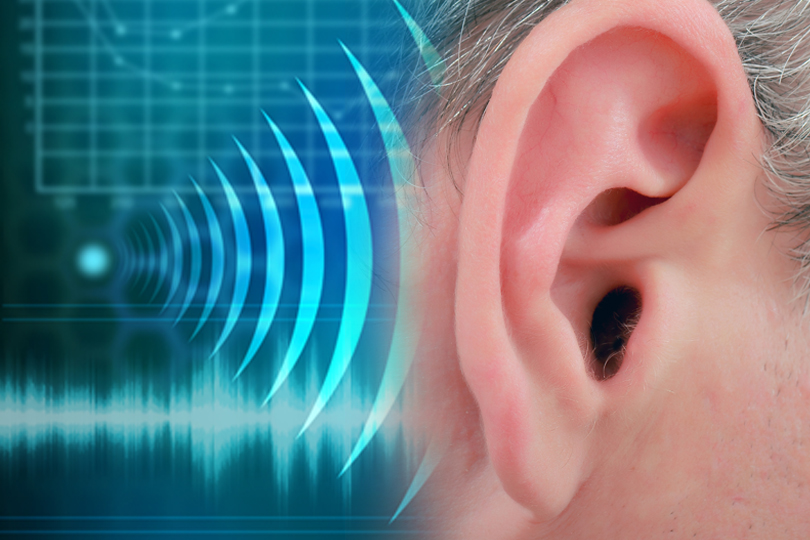Tinnitus is a term that refers to a sound that a person perceives in the absence of an external stimulus. It is often described as a ringing, buzzing, roaring, or hissing. It varies greatly from person to person; two people may describe their tinnitus completely differently. It is very subjective and unique to the individual.
Tinnitus can occur in one or both ears, or it may sound like it is centralized in the head. It can occur suddenly or may develop gradually and it can be constant, pulsed, or intermittent. The exact cause of tinnitus is still unknown but it is generally thought that the sound is a result of excessive neural activity in the auditory system. The ear itself may not be the cause of the sound, as it is possible to be caused by the auditory cortex of the brain. There are several factors that can influence tinnitus such as hearing loss, noise exposure, natural aging, and/or medical conditions of the jaw or neck. Some medications can also cause or influence tinnitus.
Most people are concerned when they first experience tinnitus and they want to discover its cause. It can be quite distressing as they worry it may be a sign of a more serious issue. This added stress can actually worsen tinnitus. Emotional reactions and stress are key contributors to tinnitus; a vicious cycle can be created quite easily.
In the past many professionals told their patients that they just had to live with it and there was nothing they could do, which would undoubtedly cause the person stress. Some people still hear this today which is unfortunate as there have been advanced in tinnitus treatment. While there is no present “cure” for tinnitus, there are options to help manage it.
To begin the process, we conduct a through case history to obtain as much information as we can about the tinnitus and hearing. Questionnaires and other inventories are completed to determine the level of handicap. A complete hearing assessment is performed along with tinnitus pitch- and loudness-matching. A tinnitus treatment strategy can then be implemented which may include activities to help manage the stress and emotional triggers. Certain medical issues may be explored such as jaw or neck pain and appropriate referrals can be recommended.
If a hearing loss is present, its treatment may have a positive influence on the person’s tinnitus. It is common to have some degree of hearing loss when tinnitus is present. Hearing aids can help “fill in the blanks” by providing more sound where it is needed. This additional auditory input can help mask the tinnitus. There are even tinnitus-specific programs and features in hearing aids to help with its management. Other devices, such as noise machines, can be used to help to manage tinnitus and its symptoms.
One of the biggest factors is the emotional impact tinnitus can have on a person. By managing this subjective and emotional side, coupled with sound therapies, such as hearing aids, there is a greater chance of overcoming the negative effects of tinnitus. Everyone’s tinnitus is unique and we all have different circumstances which affect the impact the tinnitus can have on our lives, thoughts, emotions, hearing, sleep, and concentration. We will work with you to help develop a treatment plan so that you can get back to living your life.


